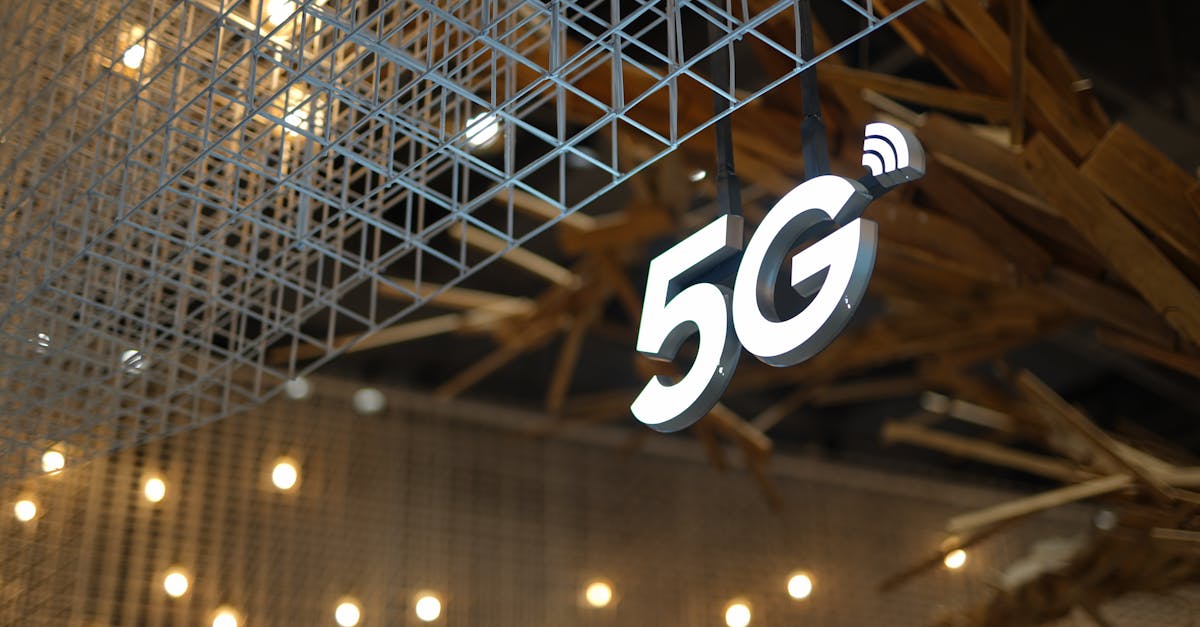5G Expansion How Ultra Fast Networks Will Change Life
Introduction
Imagine a world where your online meeting loads instantly, where downloading a high-definition movie takes mere seconds, and where self-driving cars communicate effortlessly in real-time. This is not a distant dream but a present-day reality, thanks to the awe-inspiring expansion of 5G networks. Heralded as the fifth generation of mobile network technology, 5G is set to radically transform everyday life by offering ultra-fast speeds, reduced latency, and enhanced connectivity. From revolutionizing industries to powering smart cities, 5G's promise is compelling and expansive. But how exactly will this technological marvel change our daily lives, and what innovations are anticipated in the coming years? Let's delve into this fascinating evolution to understand how 5G will redefine our digital landscape.
Advertisement
The Need for Speed
At the heart of 5G's groundbreaking capabilities is its unprecedented velocity. Offering speeds up to 100 times faster than its predecessor, 4G, 5G enables instantaneous data transfer that opens up new possibilities in communication and computing. For consumers, this means no more frustrating buffering while streaming videos or prolonged loading times during online gaming. Businesses, particularly those relying heavily on cloud computing and data sharing, will benefit significantly from this enhanced speed, allowing them to operate with greater agility and efficiency. Moreover, industries such as education will see a surge in interactive learning experiences through virtual classrooms fueled by 5G's rapid connectivity.
Advertisement
Latency Like Never Before
Besides speed, 5G brings with it the advantage of remarkably low latency, which refers to the time taken for data to travel from one point to another. In the context of 5G, latency drops to as low as one millisecond—almost imperceptibly instantaneous. For telecommunication, reduced latency translates to more seamless video calls and faster response times, making remote work more efficient. In advanced fields such as robotics and automation, this means machines can communicate and collaborate in real-time, paving the way for more sophisticated and synchronized operations. Gamers, too, will delight in the virtually lag-free experience, with immediate responsiveness enhancing the gameplay.
Advertisement
The Internet of Things Revolution
The expansion of 5G will be pivotal in realizing the full potential of the Internet of Things (IoT)—a network of interconnected devices that interact and share data. With 5G's expanded capacity and speed, smart homes will become more intuitive, with devices such as thermostats, security systems, and appliances working harmoniously. IoT-enabled devices will be omnipresent, from wearable health trackers to smart transport systems, leading to more personalized and efficient living. In agriculture, IoT solutions can leverage 5G to optimize resources, monitor crops in real-time, and boost sustainability efforts.
Advertisement
Healthcare for the Future
Among the most promising applications of 5G lies in the realm of healthcare, where it enables an unprecedented level of connectivity essential for telemedicine and remote surgeries. Medical consultations via video call will become more accessible, reaching patients in remote locations who previously had limited access to healthcare. Real-time monitoring devices will allow healthcare professionals to track patient vitals from afar, leading to earlier interventions in emergencies. Moreover, the ability to transmit large medical imaging files at lightning speed enhances diagnosis and treatment, making healthcare more accurate and responsive than ever before.
Advertisement
Driving Smart Cities
5G technology will play a key role in the evolution of smart cities, transforming urban landscapes with innovative infrastructure solutions. Enhanced connectivity will improve traffic management, with smart traffic lights reducing congestion and lowering emissions. Public safety will be enhanced through smart surveillance systems and automated responses to emergencies. Additionally, smart grids will revolutionize energy management, providing efficient, sustainable power to urban populations. By optimizing city services, improving quality of life, and reducing environmental impact, 5G-enabled smart cities will represent the future of urban living.
Advertisement
Entertainment Takes a Leap
The entertainment landscape stands to benefit immensely from the expansion of 5G with the advent of augmented reality (AR) and virtual reality (VR) experiences. From immersive gaming platforms to virtual cinema experiences, the possibilities are vast. Artists and content creators will find novel ways to engage audiences through interactive performance experiences. 5G will revolutionize content production and distribution, enabling live events to be streamed in seamless ultra-high definition, connecting audiences worldwide like never before. This will redefine traditional media consumption, catering to a generation that craves unprecedented interactivity.
Advertisement
Industry Transformation
Across myriad industries, 5G is set to spearhead transformation, optimizing operations and spurring innovations. Manufacturing sectors will leverage 5G for smart factories, where machines communicate and coordinate autonomously to streamline production lines. Agricultural operations will employ drones for real-time monitoring and management. Logistics companies will enhance supply chain management with automated, 5G-driven tracking systems. In construction, 5G enables remote-controlled machinery, improving safety and efficiency on worksites. By harnessing 5G technology, industries will leap ahead in productivity and capability, marking a new era of industrial revolution.
Advertisement
Challenges and Solutions
Despite its potential, 5G's widespread implementation comes with challenges, including the need for substantial infrastructure investment and addressing cybersecurity concerns. The rollout of 5G infrastructure, involving the installation of numerous small cells, may be impeded by regulatory hurdles and high costs. Moreover, as more devices become connected, cybersecurity risks could escalate, necessitating advanced solutions to safeguard data. Ensuring equitable access to 5G services, especially in rural or underserved areas, will also be a crucial hurdle. Addressing these challenges requires collaborative efforts from governments, industry stakeholders, and communities to ensure a secure and ubiquitous 5G rollout.
Advertisement
Conclusion
5G has the potential to redefine everyday life, transforming how we communicate, work, and play. This ultra-fast network heralds a new era of connectivity, with profound implications for industries, healthcare, and urban development. As we navigate the challenges of 5G deployment, the exciting possibilities promised by this cutting-edge technology offer a glimpse into a future of boundless opportunities. From seamless communication to smarter cities, 5G stands poised to bring about transformative change, enriching lives across the globe in ways previously unimaginable.
Advertisement
